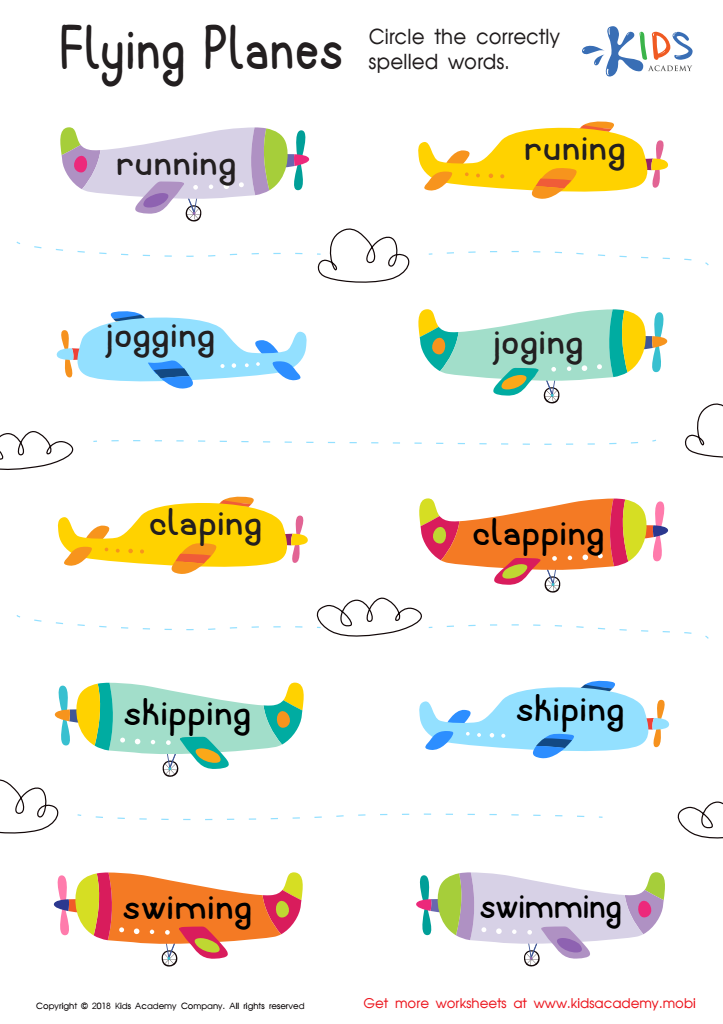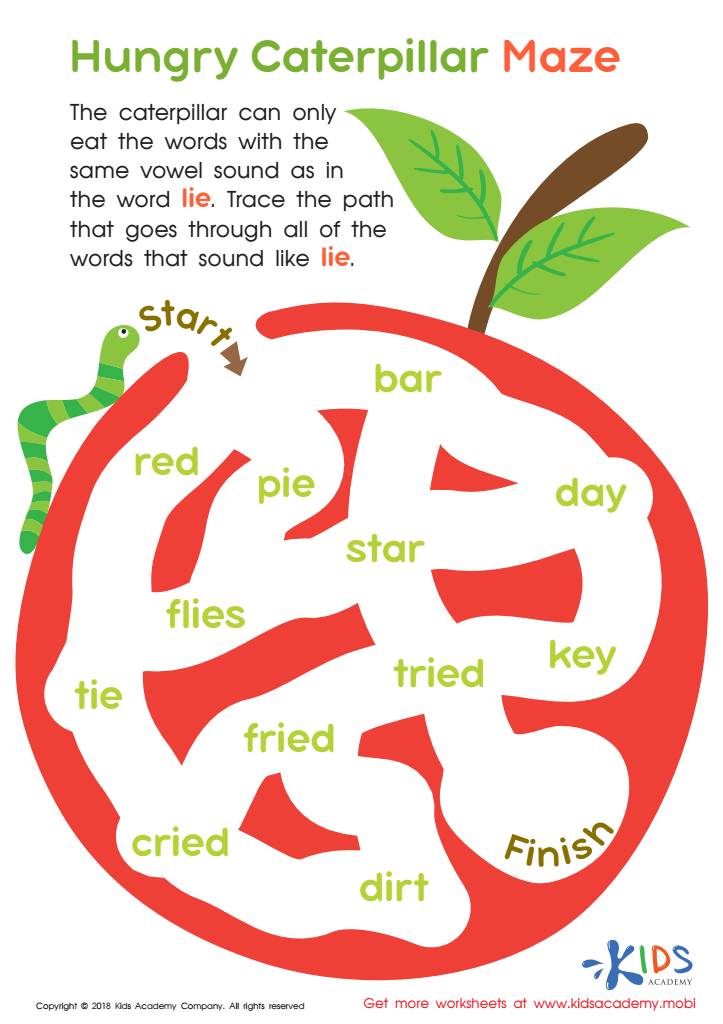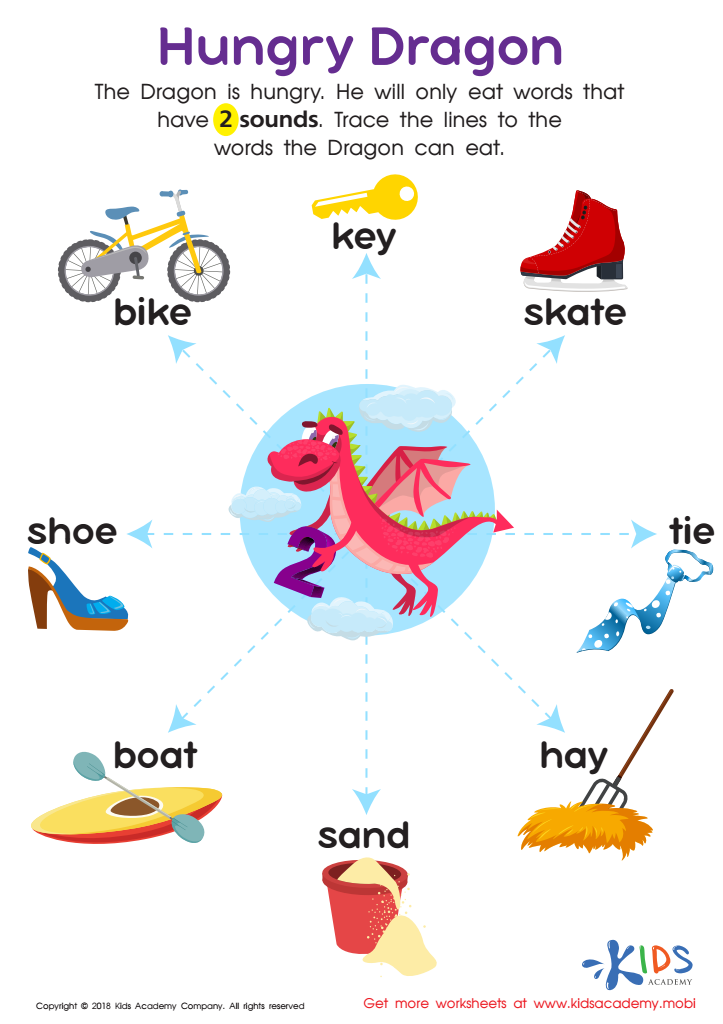Problem-Solving Skills Phonics Worksheets for Ages 5-6
4 filtered results
-
From - To
Enhance your child's literacy with our engaging Problem-Solving Skills Phonics Worksheets designed for ages 5-6. These worksheets incorporate fun, interactive activities that foster critical thinking and phonemic awareness. Children will practice blending sounds, decoding words, and solving phonics-related challenges, all while boosting their problem-solving abilities. Each worksheet aligns with early learning standards, making it a perfect resource for homeschoolers and educators alike. With colorful illustrations and age-appropriate exercises, your little ones will enjoy mastering phonics in a playful yet productive way. Equip your child with essential skills for academic success while deepening their love for learning with our worksheets today!


Flying Planes Worksheet


Long Vowel Maze /o/ and /i/ Worksheet


Hungry Caterpillar Maze Worksheet


Hungry Dragon Worksheet
Problem-solving skills are essential for young learners, especially when integrated with phonics for ages 5-6. At this developmental stage, children are naturally curious, and their ability to decode words is crucial to their academic success. Phonics instruction helps young children understand the relationships between letters and sounds, which is foundational for reading.
Incorporating problem-solving into phonics engages children creatively and critically. When children face challenges in understanding sounds or decoding words, they learn to analyze problems, explore solutions, and think independently. This not only enhances their literacy skills but also fosters resilience and a growth mindset.
Parents and teachers should prioritize problem-solving skills as they create environments where children can experiment with language. It encourages collaboration through peer discussions and shared learning experiences. As students learn to navigate phonemic problems together, they develop communication skills and social capabilities vital for their overall development.
Ultimately, promoting problem-solving in phonics empowers children with the confidence to tackle reading challenges, setting the groundwork for lifelong learning and an appreciation for education. By focusing on these skills at an early age, we prepare children for future academic pursuits and everyday life challenges.

 Assign to My Students
Assign to My Students















